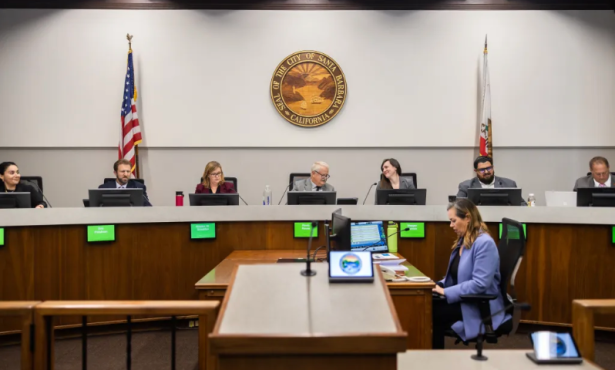Governor Orders Mandatory Water Cutbacks
Jerry Brown Demands 25 Percent Reductions

With California leaving its alleged rainy season in the rearview mirror with precious little precipitation to show for it, Governor Jerry Brown has ordered all state water agencies to cut back consumption by at least 25 percent. Santa Barbara water agencies — with the exception of Montecito — have been asking their customers to cut back by 20 percent since early last spring.
Four years into the worst drought in recorded California history, Brown’s action was triggered in part by record-breaking low snowpack in the Sierra Mountains. Snowpack is the key water source for the state in general, but especially for major irrigation infrastructure like the State Water Project. While it remains premature to say with certainty, many local water directors anticipate getting absolutely no State Water deliveries next year. That would be a historic first.
In addition, Brown and the state legislature announced last week that $1 billion in emergency drought relief funding would be made available to state water agencies. Much of this funding had already been secured by bond initiatives, but under the terms of the announcement, it will be made available sooner. Many South Coast water agencies are currently on the brink of declaring State III drought emergencies anyway, meaning mandatory prohibitions on daytime lawn irrigation and car washing were already set to go into effect.
The governor’s announcement has been greeted privately by some eye-rolling among local water chiefs who contend a few of the prohibitions demanded by the governor — such as lawn watering only twice a week — will prove extremely problematic to enforce. To date, most water agencies have sought to avoid the significant political heartburn that comes with serious enforcement efforts. Except for Montecito, which imposed rationing last February, most South Coast agencies have sought voluntary reductions.
Aside from enforcement headaches, another concern activated by the governor’s edict is loss of water sales. Most agencies can absorb a 20 percent reduction without drowning in debt. Beyond that, the loss of revenues can become troublesome.



